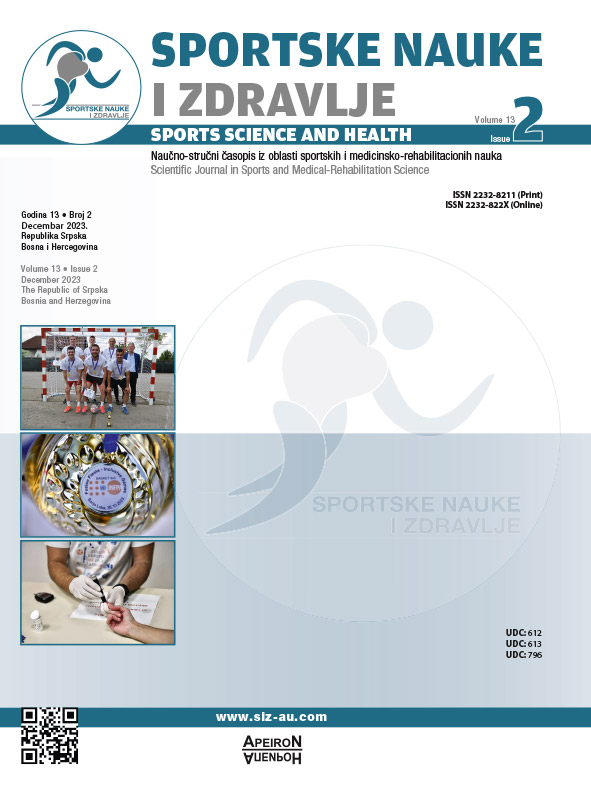Relationship between physical fitness and lifestyle of early school-aged boys and girls
DOI:
https://doi.org/10.7251/SSH2302181SAbstract
Monitoring physical fitness is a strong indicator of health status in childhood, adolescence, and adulthood. School provides an ideal environment to assess and monitor the level of physical fitness in children. The research aims to determine the correlation between the physical fitness of early school-aged children (6 to 10 years old) and their lifestyle, particularly the time spent in physical activity. The study was conducted on a sample of 940 participants aged 6 to 10, randomly selected from several primary schools in the Skopje region. The sample was divided into two subgroups by gender, consisting of 466 male participants and 474 female participants. Differences between groups were determined through one-factor multivariate and univariate analysis of covariance (MANCOVA and ANCOVA) with age partialization. The results of this research show a correlation among male participants who engaged in more than 60 minutes of daily physical activity and tests assessing physical fitness (motor skills). For girls, self-reported physical activity was only associated with results on the 20-meter progressive shuttle run test.
